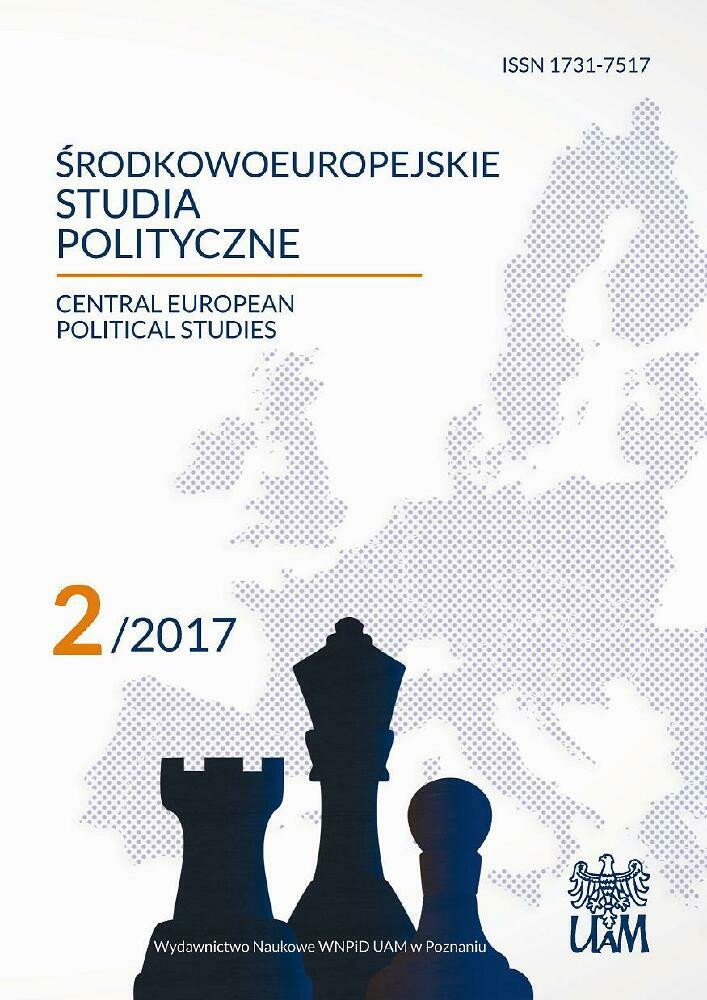Abstract
The paper concerns selected aspects of the activities of the intelligence and counterintelligence services. These services are responsible for ensuring state security, which is currently the main goal of all authorities. Any policy in this regard must reflect the art of state governance according to the existing moral, legal and economic codes, but must also provide or create such opportunities as make it possible to come out of unstable or conflict situations with the least loss for the state. A key role is played here by counterintelligence services. A security policy is shaped by uncertainty and danger. In the case of Russia, the activities of the special services are a pillar of both domestic and foreign policies. Neutralizing and combating Russian intelligence is extremely difficult for Polish services, given the long tradition and extensive knowledge and experience of Russia. Counterintelligence is crucial for the importance and development of each country. By definition, counterintelligence recognizes the importance of public information for the security of the state, to help, among others, in predicting and preventing future threats. The priority is to protect information from foreign services operating at the expense of the national interest.
References
Carty P. (1997), Bugged by something, „Accountancy”, nr 119.
Counterintelligence Evaluation Regulations (2006), „The Federal Register”, https://www.federalregister.gov/documents/2006/09/29/E6-16049/counterintelligence-evaluation-regulations, 15.01.2016.
Degaut M. (2015), Spies and Policymakers: Intelligence in the Information Age, „Intelligence and National Security”, nr 31/4.
FSB director Patrushev interviewed on work of Russian counterintelligence (2007), „BBC Monitoring Former Soviet Union”, 10 listopada.
Górka M. (2015), Mossad. Porażki i sukcesy tajnych służb izraelskich, Warszawa.
Górka M. (2013), Czynniki motywujące i demotywujące oraz ich znaczenie dla pracy w służbach specjalnych, w: Rola i zadania służb w systemie bezpieczeństwa publicznego, red. M. Górka, Koszalin.
Górka M. (2016), Otwarte źródła informacji – nowa czy klasyczna formuła wywiadu?, w: Służby wywiadowcze jako element polskiej polityki bezpieczeństwa, red. M. Górka, Toruń.
Holstein W. J. (1998), Corporate spy wars, „US News and World Report”.
Jaślan M. (2016), Samorządy na cybercelowniku, http://www.cyberdefence24.pl/307434,samorzady-na-cybercelowniku, 17.01.2016.
Kipp J. W. (2015), FMSO-JRIC and Open Source Intelligence: Speaking Prose in a World of Verse, „Military Intelligence Professional Bulletin”, nr 31/4.
Martins J., Santos H., Nunes P., Silva R. (2012), Information Security Model to Military Organizations in Environment of Information Warfare, „European Conference on Information Warfare and Security”, nr 7.
Military counterintelligence identities not protected in Poland (2008), „BBC Monitoring
European”, 3 kwietnia.
Morris W. (2000), Army counterintelligence and the impact of the Defense Counterintelligence Information System, „Military Intelligence Professional Bulletin”, nr 26/1.
O’Connell P. E. (1994), Countering the threat of espionage, „Security Management”, nr 38/5.
Piasecki B. (2015), Offensive Counterintelligence and the Challenges facing Polish Intelligence Services, https://www.stratfor.com/the-hub/offensive-counterintelligence-and-challenges-facing-polish-intelligence-services, 12.02.2016.
Polish counterintelligence in disarray after documents copied (2008), „BBC Monitoring European”, 16 kwietnia.
Security chief outlines role of Russian military counterintelligence (2006), „BBC Monitoring Former Soviet Union”, 23 luty.
Poland Needs New Counterintelligence Service (2014), „Polish News Bulletin. Weekend Supplement”, 1 kwietnia.
Procner W. (2015), Wywiad i kontrwywiad w procesie strategicznej dezinformacji, „Secretum”, nr 1/2.
Pringle R. W. (2006), Historical Dictionary of Russian and Soviet Intelligence, w: Historical Dictionaries of Intelligence and Counterintelligence, t. 5, red. J. Woronoff, Lanham, Maryland–Toronto–Oxford.
Służby specjalne we współczesnym państwie (2017), red. Z. Siemiątkowski, A. Zięba, Warszawa.
Turner M. A. (2006), Historical Dictionary of United States Intelligence, w: Historical Dictionaries of Intelligence and Counterintelligence, t. 2, red. J. Woronoff, Lanham, Maryland–Toronto–Oxford.
Ustawa z dnia 24 maja 2002 r. o Agencji Bezpieczeństwa Wewnętrznego oraz Agencji Wywiadu, http://isap.sejm.gov.pl/DetailsServlet?id=WDU20020740676, 12.01.2017.
Vermeulen C., von Solms R. (2002), The information security management toolbox – taking the pain out of security management, „Information Management and Computer Security”, nr 10 (2/3).
Wywiad biznesowy. Praktyczne wprowadzenie (2017), red. A. Bielska, P. Smółka, Warszawa.

